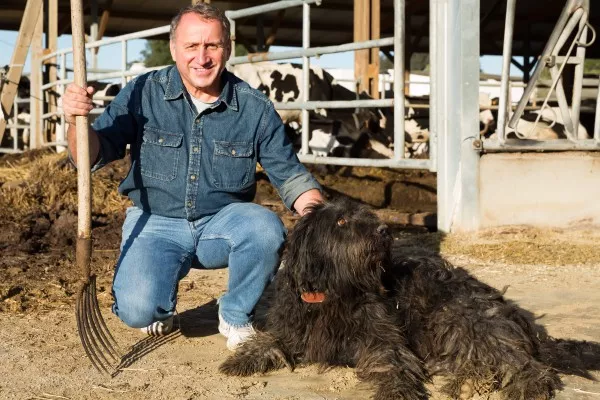LEADER’s capacity for community-led agri-food development
LEADER has a long track record in successfully supporting new collaborative initiatives through agri-food projects aimed at strengthening the resilience of rural Europe’s economy.
Collective action is a core concept of LEADER and LAGs have a strong track record in successfully supporting new community-led collaborative agri-food initiatives aimed at strengthening the resilience of rural Europe’s economy.
Agri-food cooperation has been a focus for LEADER since the methodology’s early days in the 1990s. In that context, there is a large library of LAG-funded agri-food good practices in this field, covering all EU Member States. This experience offers useful insights to help stakeholders achieve success in terms of contributions to all ten Common Agricultural Policy (CAP) Specific Objectives. This is because LEADER can act as a laboratory to test collective agri-food approaches that can also be further mainstreamed through other CAP support to transform agri-food systems in a sustainable manner.
LEADER’s strategic value has been established through community-led agri-food projects involving a range of value chain partners, from farmers through to food processors, restaurants and retailers. Results from these LEADER-funded initiatives help to create and safeguard rural jobs by introducing new products and services that help local firms and families in rural Europe adapt to changing conditions like climate and other crises. For instance, food supply resilience and sustainability have been improved thanks to LEADER through short-supply chains and direct sales initiatives that can provide new income possibilities, reduce food miles and increase consumer choice.

Funding for farming projects
Small farms are often among the beneficiaries of such LEADER support. A good example of this can be found in Romania, where the Southwest Satu Mare Local Action Group (LAG) developed a project to help fruit farmers take advantage of short supply chain synergies by working together in partnership with a farm tourism business and a school. Prior to the project, local farmers remained reticent and reserved about cooperation. This was the signal that the LAG needed to engage its outreach potential as an extension service and launch the process of nurturing a culture of food cooperation using LEADER funds as an additional incentive.
Building a better understanding among local farmers about the benefits of cooperation possibilities for them proved productive for the LAG. Results provide a confidence boost for the entire local community that can inspire more agri-food cooperation, capable of making good use of the CAP Strategic Plan (CSP) funding prospects that are now available.
CSP agri-food contributions to gender equality are also important for LAGs, and Lithuania’s Goodies village LEADER project underlines the competence of LAGs in targeting priority policy groups. It enabled new employment for some 15 women from a rural town who worked together to supply demand for organic products in neighbouring cities. Project activities are still ongoing with locally sourced nutritional fruit and honey products being sold through shops and markets as well as online.
This project shows that one of LEADER’s innovative attributes is its capacity to act as a catalyst in terms of delivering locally significant results from relatively small-scale investments. The results do not only lead to immediate direct outcomes but also to a major boost in terms of community confidence, which in turn can encourage more and longer-term collective rural innovation by new and existing agri-food stakeholders.
Locally-led innovation
Innovation has always been integral to LEADER and each LAG’s selection criteria can be used to encourage novel funding applications. Focusing on new ideas and testing new approaches helps rural territories react to changing circumstances and LAGs have been popular ‘agents of change’ for agri-food businesses. For example, Dutch coastal farmers are under pressure from rising sea levels, which can increase soil salinity and drive demand for long-term diversification options. Recently, LEADER has been involved in addressing such climate challenges by co-financing applied farmer-led research to clarify the commercial potential of exclusive high value food crops like sea bananas, which can be grown on saline land.
These are just a few samples of LEADER success stories in agri-food cooperation. To discover and share other transferable testimonies featuring agri-food territorial development by LAGs, you can search the EU’s LEADER resource portal.